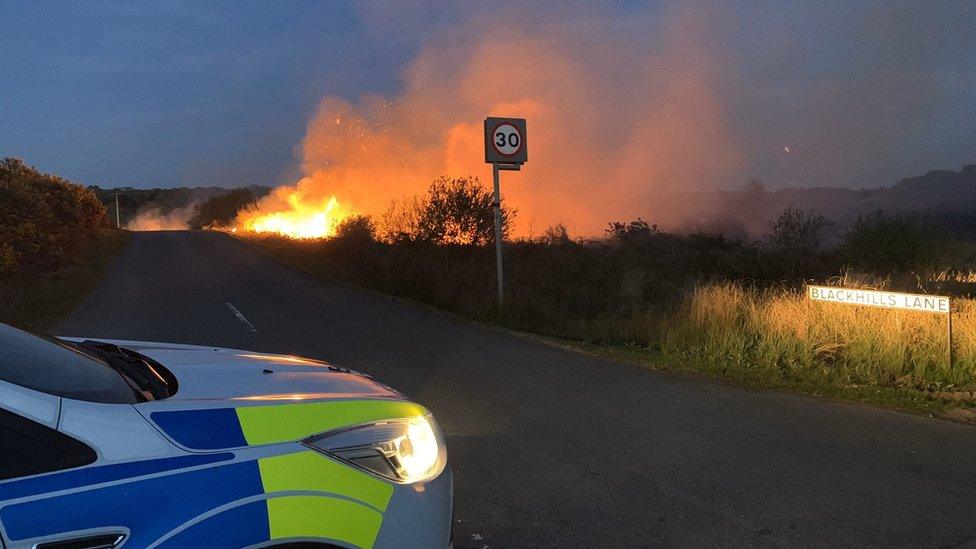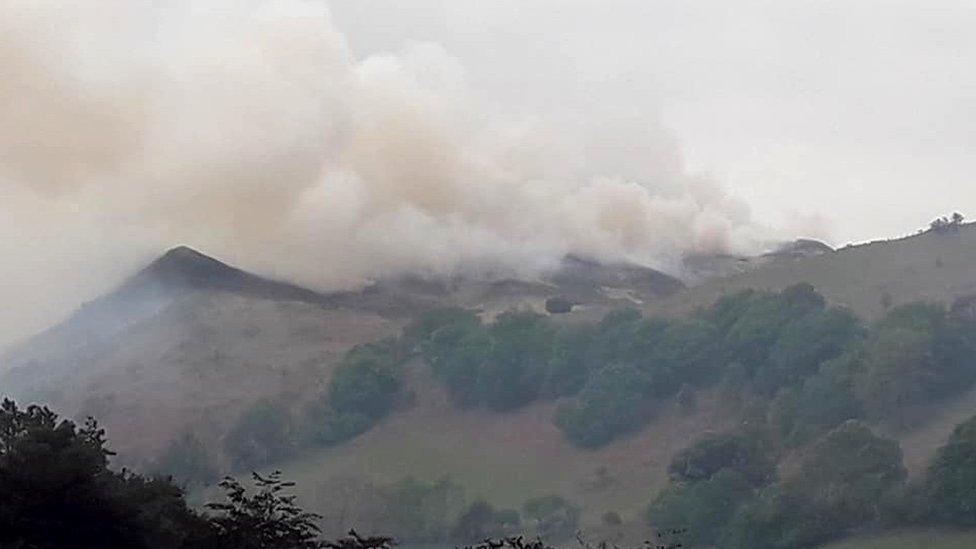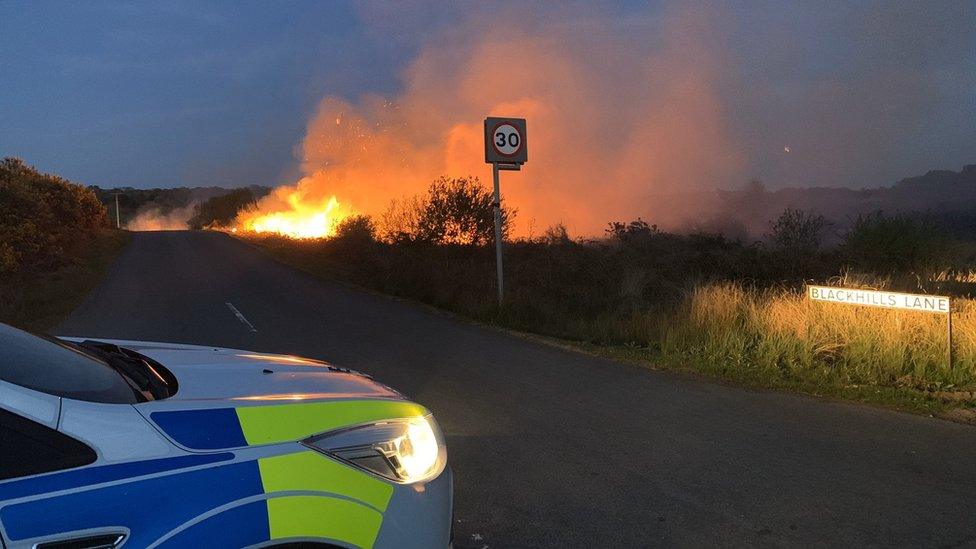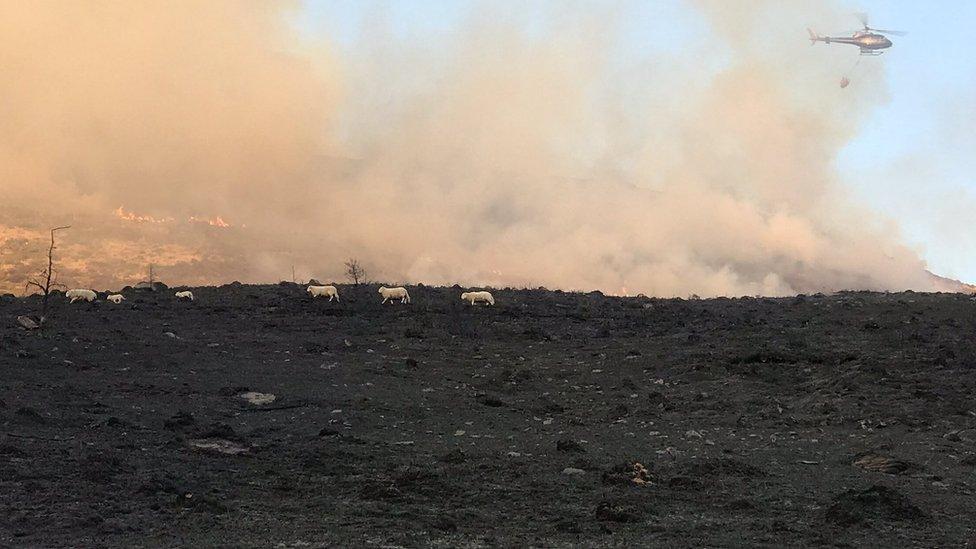Coronavirus: No barbecues plea to prevent wildfires
- Published

This disposable barbecue is thought to have been the cause of a fire in Bryn Forest near Hafod Farm
As more lockdown measures are eased, visitors to beauty spots around Wales are being urged to leave their disposable barbecues at home to prevent accidental grass fires.
Wales' fire services say since lockdown began, there has already been a rise in deliberate and accidental grass fires.
As more visitors go to the countryside, there are worries of a further rise.
Natural Resources Wales (NRW) said not disposing of barbecues properly was a common cause of hard-to-control fires.
The environmental body made the plea before more steps to ease lockdown begin on Monday.
"Disposable barbecues are a common cause of hard-to-control wildfires in Wales and, most recently caused a fire at Bryn Forest near Hafod Farm in the Afan Valley," a spokesman said.
"The fire was brought under control quickly, before it really took hold.
"Failing to extinguish barbecues completely, not disposing of them properly, or taking them home, are the main causes of accidental wildfires."
Up to half a million pounds of damage has been caused to nature, experts say
The warning follows a spate of fires since lockdown began.
In May, Mid and West Wales Fire Service said there had been more than 1,000 across Wales in eight weeks alone - the majority thought to have been started deliberately.
And all three fire services in Wales have all reported a rise in grass fires callouts during the warmer weather season and all have urged people to be vigilant.
South Wales Fire Service said it had seen a 52% increase in the number of deliberate grass fires in the last eight weeks compared with the same period last year.
It said it had 248 calls in eight weeks this year, including one weekend where 70 deliberate wildfires were started.
In a statement, the brigade said: "Wildfires are extremely dangerous and can spread extremely quickly, putting lives in danger, causing significant damage to property and the environment including causing harm to wildlife."

Emergency services have dealt with an increase in wildfires during lockdown
Mid and West Wales Fire Service also reported a 24% increase in grass fires this year compared to 2019, with more than 600 call outs so far.
North Wales Fire Service said it has been called to a number of fires - many caused by improper use of barbecues and camp fires.
Paul Scott, senior fire safety manager for the service, said: "The dry weather we have experienced has meant we have been called out to a number of grass and gorse fires, tying up crews for hours at a time when we are looking to reduce demand on our firefighters."
Grass fires, whether deliberate or accidental, have led to increasingly negative impacts on the wildlife, as well as the air and water quality.
NRW is urging people to be responsible as more trips are made to the countryside.
Richard Owens, from NRW, said: "People don't realise how easy it is for a rogue ember from a barbecue or bonfire, or discarding of a cigarette that is still lit, to develop into something bigger."
- Published20 May 2020

- Published20 April 2020

- Published16 April 2020
